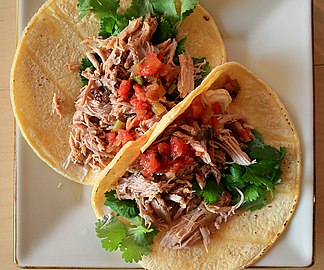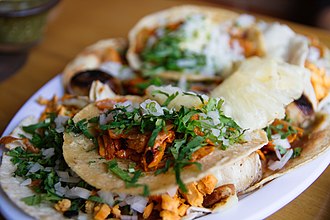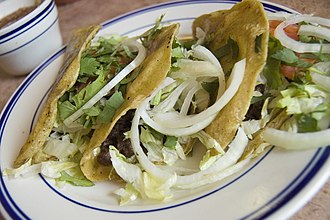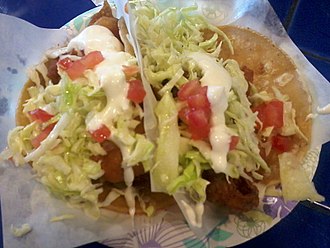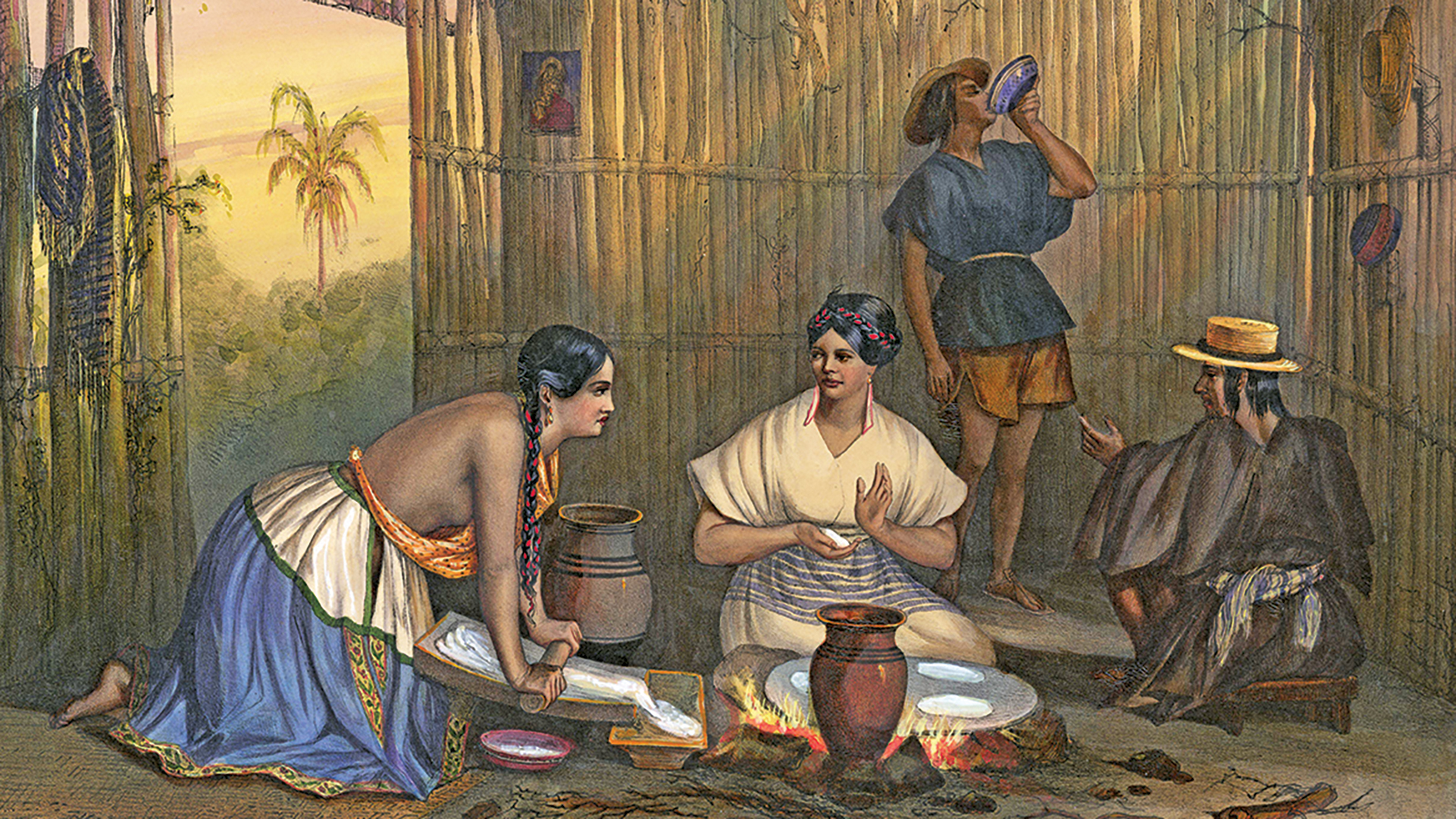The origins of the taco are not precisely known, and etymologies for the culinary usage of the word are generally theoretical. Taco in the sense of a typical Mexican dish comprising a maize tortilla folded around food is just one of the meanings connoted by the word, according to the Real Academia Española, publisher of Diccionario de la Lengua Española. This meaning of the Spanish word "taco" is a Mexican innovation, but the word "taco" is used in other contexts to mean "wedge; wad, plug; billiard cue; blowpipe; ramrod; short, stocky person; [or] short, thick piece of wood." The etymological origin of this sense of the word is Germanic and has cognates in other European languages, including the French word tache and the English word "tack".
In Spain, the word "taco" can also be used in the context of tacos de jamón: these are diced pieces of ham, or sometimes bits and shavings of ham leftover after a larger piece is sliced. They can be served on their own as tapas or street food, or can be added to other dishes such as salmorejo, omelettes, stews, empanadas, or melón con jamón
According to one etymological theory, the culinary origin of the term "taco" in Mexico can be traced to its employment, among Mexican silver miners, as a term signifying "plug." The miners used explosive charges in plug form, consisting of a paper wrapper and gunpowder filling.
Indigenous origins are also proposed. One possibility is that the word derives from the Nahuatl word tlahco, meaning "half" or "in the middle", in the sense that food would be placed in the middle of a tortilla. Furthermore, dishes analogous to the taco were known to have existed in Pre-Columbian society—for example, the Nahuatl word tlaxcalli (a type of corn tortilla).
